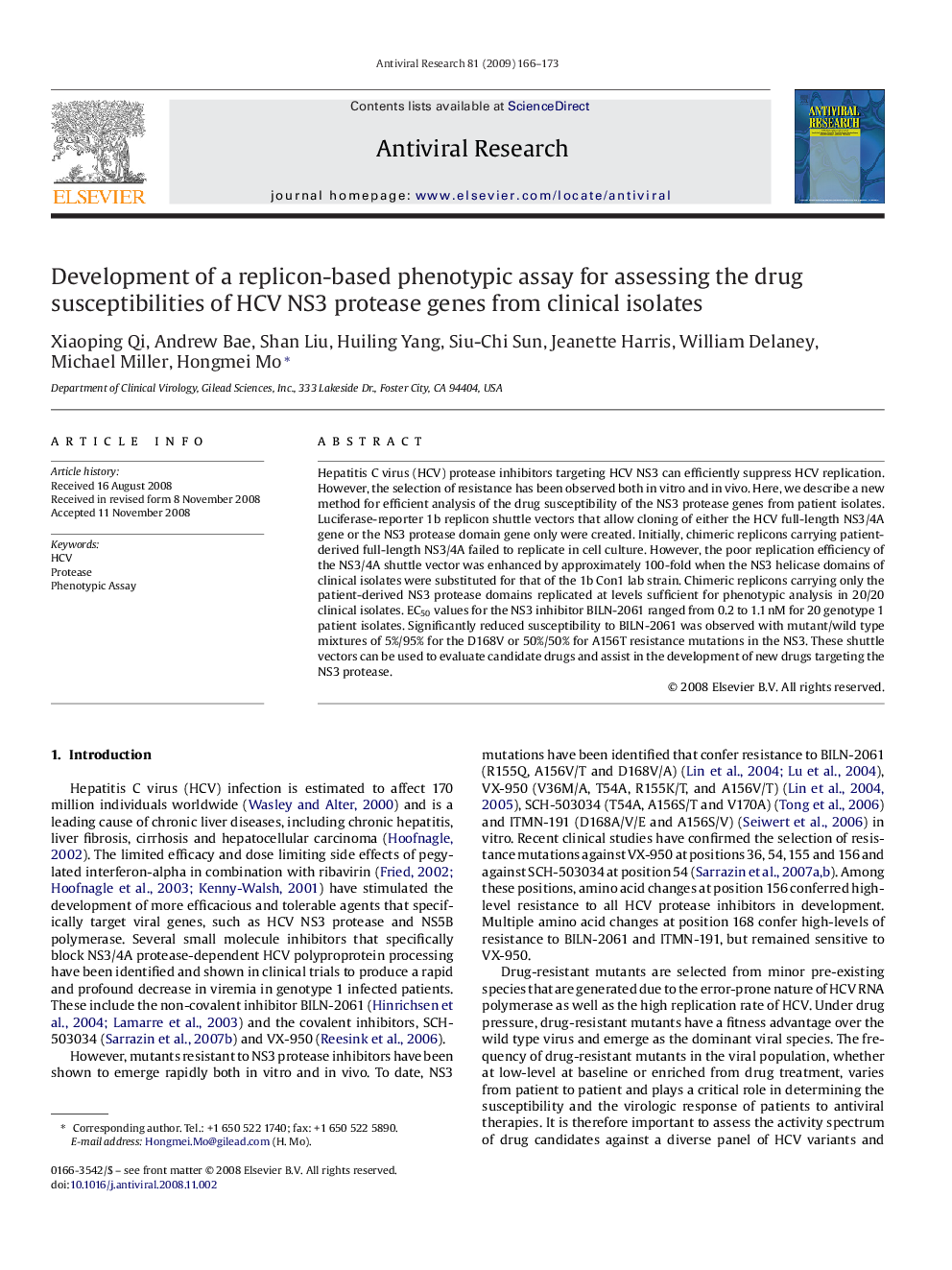| Article ID | Journal | Published Year | Pages | File Type |
|---|---|---|---|---|
| 2510970 | Antiviral Research | 2009 | 8 Pages |
Hepatitis C virus (HCV) protease inhibitors targeting HCV NS3 can efficiently suppress HCV replication. However, the selection of resistance has been observed both in vitro and in vivo. Here, we describe a new method for efficient analysis of the drug susceptibility of the NS3 protease genes from patient isolates. Luciferase-reporter 1b replicon shuttle vectors that allow cloning of either the HCV full-length NS3/4A gene or the NS3 protease domain gene only were created. Initially, chimeric replicons carrying patient-derived full-length NS3/4A failed to replicate in cell culture. However, the poor replication efficiency of the NS3/4A shuttle vector was enhanced by approximately 100-fold when the NS3 helicase domains of clinical isolates were substituted for that of the 1b Con1 lab strain. Chimeric replicons carrying only the patient-derived NS3 protease domains replicated at levels sufficient for phenotypic analysis in 20/20 clinical isolates. EC50 values for the NS3 inhibitor BILN-2061 ranged from 0.2 to 1.1 nM for 20 genotype 1 patient isolates. Significantly reduced susceptibility to BILN-2061 was observed with mutant/wild type mixtures of 5%/95% for the D168V or 50%/50% for A156T resistance mutations in the NS3. These shuttle vectors can be used to evaluate candidate drugs and assist in the development of new drugs targeting the NS3 protease.
